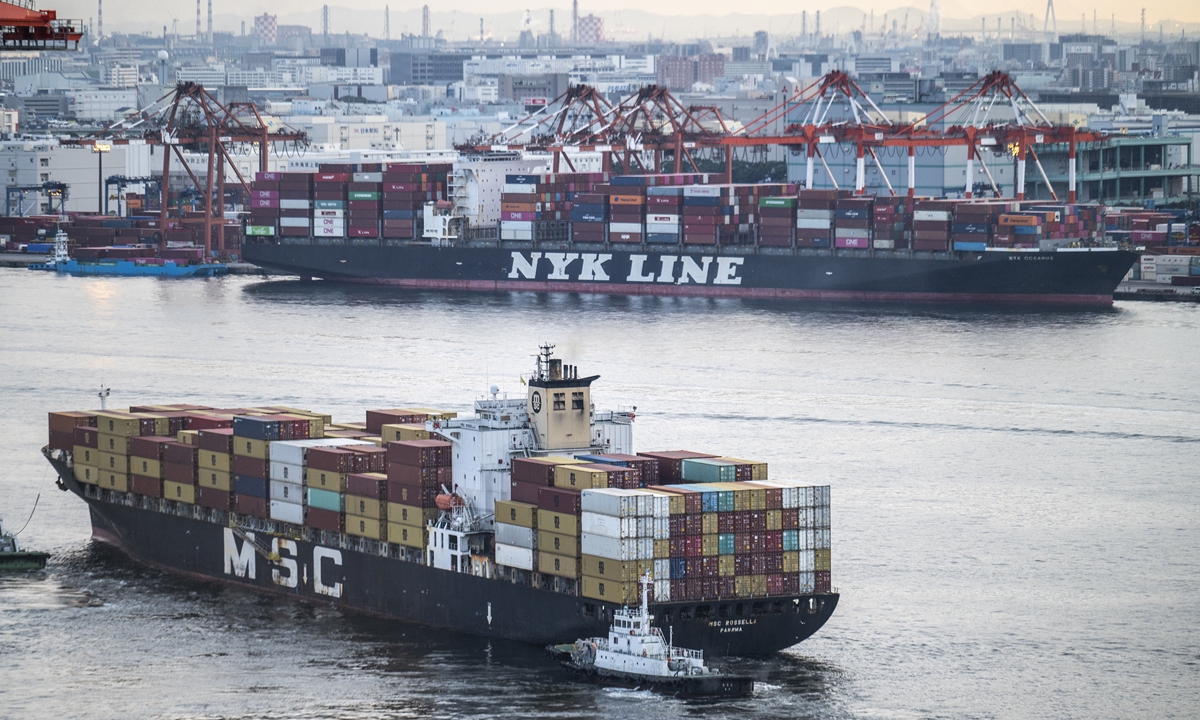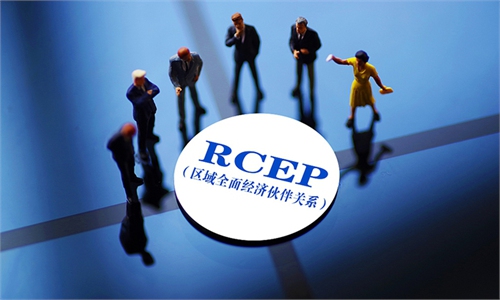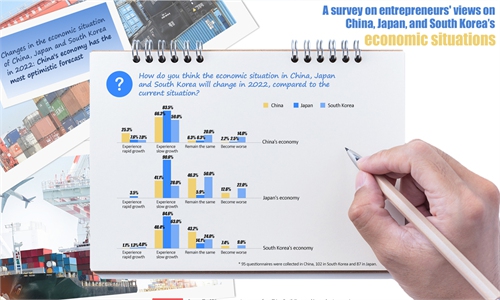
A container ship from MSC (bottom) leaves while another one from NYK Line is docked in the port of Tokyo, Japan. Photo: AFP
Japan's new economic security legislation, which has the ill-intended purpose of strengthening reviews of Japanese investment in China, will inevitably affect bilateral cooperation in high-end manufacturing and high-tech fields, Chinese experts warned on Tuesday.
The Japanese government would submit an outline of a bill to promote economic security to the regular session of the Diet, which convened on Monday, according to Japanese media reports. The bill is said to be a signature policy of Japanese Prime Minister Fumio Kishida.
Experts said that the bill marks the first time that Japan has brought economic issues to the level of national security.
While it is unclear when and how the bill could be passed, it sends a clear message of the new Japanese government's intention to reduce its heavy dependence on China in the supply chains of various industries, especially the semiconductor industry, despite potential impact on Japanese businesses, Xiang Haoyu, a research fellow at the China Institute of International Studies, told the Global Times on Tuesday.
The economic security legislation is aimed at strengthening supply chains and restricting access to patented information related to national security, according to media reports.
The focus of the bill is the supply chain relationship with China, which may have a significant impact on the drone business, Nikkei Asia reported, citing a vice president of Toko Tekko, a Japanese dronemaker that has been relying on Chinese-produced parts.
The Japanese company fears that if the new economic security legislation is put in place, reviews will be prolonged or won't happen at all, the report said.
Given the tight supply chains between China and Japan, Xiang said that "if the Kishida government imposes self-limitations on normal economic cooperation between China and Japan in the name of 'preventing the threat of China,' it will definitely affect the business of Japanese companies in China."
The Japanese government's intention of tightening access to the market is in contrast with China's opening policy toward foreign entities, including those from Japan.
According to a report by PricewaterhouseCoopers, Japanese enterprises in China attach great importance to the Chinese market and are generally satisfied with the treatment and business environment in China.
Among them, 91 percent of the surveyed companies indicated that they would maintain the current scale or increase investment in China in the next three to five years.
However, Japan has a sense of crisis about the decline of its competitiveness in the high-tech field, especially the semiconductor industry, in which China's role is rising, according to Xiang.
A report by the US Semiconductor Industry Association predicted that the Chinese semiconductor industry's share of global sales will rise from 9 percent in 2020 to 17.4 percent by 2024, which will make China the world's third-largest chip exporter after the US and South Korea.
Xiang noted that Japanese companies have every reason to express concern about the proposed economic security bill, and they should also express their demands to the Japanese government.
Xiang warned that under the dominance of geopolitical thinking, Kishida's economic security policy exposes the rising risk of overgeneralizing "security," which promotes rising competition and containment against China rather than cooperation.
Global Times



